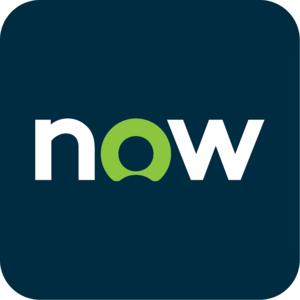Your Complete Salesforce Implementation Guide
Ever wondered how to maximize the capabilities of Salesforce in enhancing your business operations? In this comprehensive Salesforce implementation guide, we’ll take a step-by-step approach to help you understand how to seamlessly implement Salesforce in your business structure.
The Importance of Salesforce in Modern Businesses
As the digital landscape continues to evolve, so does the need for robust systems to manage customer relationships. Salesforce comes in as the all-in-one customer relationship management (CRM) solution that transforms how businesses connect to their customers. This revolutionary platform enables businesses to streamline their processes, scale their operations, and ultimately improve their bottom line.
The beauty of Salesforce is in its powerful features. It allows businesses to handle everything from marketing automation, sales tracking, customer service, and analytics on an integrated platform. The result is improved efficiencies and coordination among teams, boosting overall productivity.
Additionally, Salesforce gives businesses crucial insights into their customers. How they interact with your brand, their preferences, their challenges—it’s all there. This wealth of information makes it easier to formulate effective strategies to engage customers, foster relationships, and drive business growth.
An Overview of Salesforce Components
Salesforce is made up of numerous components that help you enhance your CRM strategy, including:
- Accounts: These represent the customers or organizations that you’re in business with.
- Contacts: These are the individuals tied to your accounts.
- Leads: These are potential clients that you’re still nurturing before converting them into accounts and contacts.
- Opportunities: These represent sales or pending deals in progress.
- Campaigns: These are marketing initiatives that you’re running.
- Reports and Dashboards: These provide insights into your sales, service, and marketing data.
Your Step-by-Step Salesforce Implementation Guide
Here’s a comprehensive Salesforce implementation guide for your consideration:
1. Evaluating Your Business Requirements
The first and most crucial step in the Salesforce implementation process is evaluating your business needs. You need to have a crystal clear understanding of how your business operates: your sales process, marketing strategies, customer service methods, and beyond.
Afterward, articulate your goals for implementing Salesforce. You might want to enhance customer relationships, enable faster decision-making, or streamline processes. Once you have clear objectives, you can begin tailoring Salesforce to meet those precise needs.
2. Planning and Designing Your Salesforce Layout
With clear business objectives in mind, you can start to plan and design your Salesforce layout. This involves mapping out how you would like your data to flow through Salesforce, detailing the fields and functions necessary, and outlining the user interface layout for maximal ease and efficiency.
Carefully consider the user experience at this stage, addressing the needs of the sales team, marketing team, and other stakeholders for a smooth CRM rollout. Remember, what works for one team may not work for another.
3. Setting Up and Customizing Salesforce
Now, it’s time to set up and customize Salesforce to align with the planned design. This phase of Salesforce implementation can be daunting without a proficient Salesforce implementation team or a trusted Salesforce implementation partner. Therefore, hiring a Salesforce consultant with in-depth knowledge and expertise can be beneficial.
Use the evaluation and planning blueprints to customize Salesforce. From user roles, permissions, layouts, and settings, to developing custom apps and integrations, the setup should mirror the business’s unique operational structure and requirements.
4. Data Importation and Management on Salesforce
Once you’ve successfully established the system structure, the next step is data importation and management. Be sure to compile all the relevant CRM data that needs to be migrated to Salesforce. Migrating your existing data into Salesforce is not just about a simple transfer, but purging outdated data and potentially detangling messy databases.
The process of data cleanup and migration is essential to ensure the new Salesforce CRM system starts off clean, efficient, and effective. Also, setting up adequate data management measures can facilitate ongoing data growth and changes.
5. Testing and Launching Your Salesforce Implementation
Before going live with your Salesforce implementation project, comprehensive testing is vital. Test the system to ensure all elements align with your business processes and objectives. Automated workflows, reporting functions, custom settings, data handling, and more all need to be tested and fine-tuned for optimal outcomes.
Upon successful testing, the time comes for the much-anticipated Salesforce rollout. Be ready for change management since introducing a new system can bring about substantial changes to your team’s day-to-day operations. An effective organizational change management strategy will ease this transition.
6. Reviewing and Optimizing Your Salesforce Implementation
Even after successful Salesforce CRM implementation, work isn’t over. Regular reviews and optimization are paramount to ensure a continually successful Salesforce implementation.
The Salesforce ecosystem is constantly evolving, so revisiting your Salesforce setup to integrate new features and improvements can enhance your business performance. Keep checking if your setup meets your business needs, adjusting and optimizing as needed. This, coupled with regular training and support for your team, will ensure Salesforce remains a stepping-stone to your business success.
Our team helps you optimize your Salesforce implementation through proper scoping, resource allocation, and more to ensure your custom Salesforce platform aligns with your business objectives.
Streamline Salesforce Implementation With Cloud Consulting Inc.
Implementing Salesforce can be your ticket to increased client satisfaction, improved operational efficiencies, and, ultimately, a reliably growing business. But remember, your implementation strategy matters as much as your decision to choose Salesforce services.
Working with proven Salesforce consulting partners like Cloud Consulting Inc. can streamline your Salesforce implementation project. With extensive experience and a team of certified experts, Cloud Consulting Inc. can help you avoid common pitfalls and set up a highly customized Salesforce system tailored for your business needs.
Whether it’s creating an implementation plan as per your team structure or navigating through the Salesforce cloud of products, Cloud Consulting Inc. is your trusted partner for a successful Salesforce CRM Implementation and managed Salesforce solutions. Get in touch with us today for a proven implementation solution.






